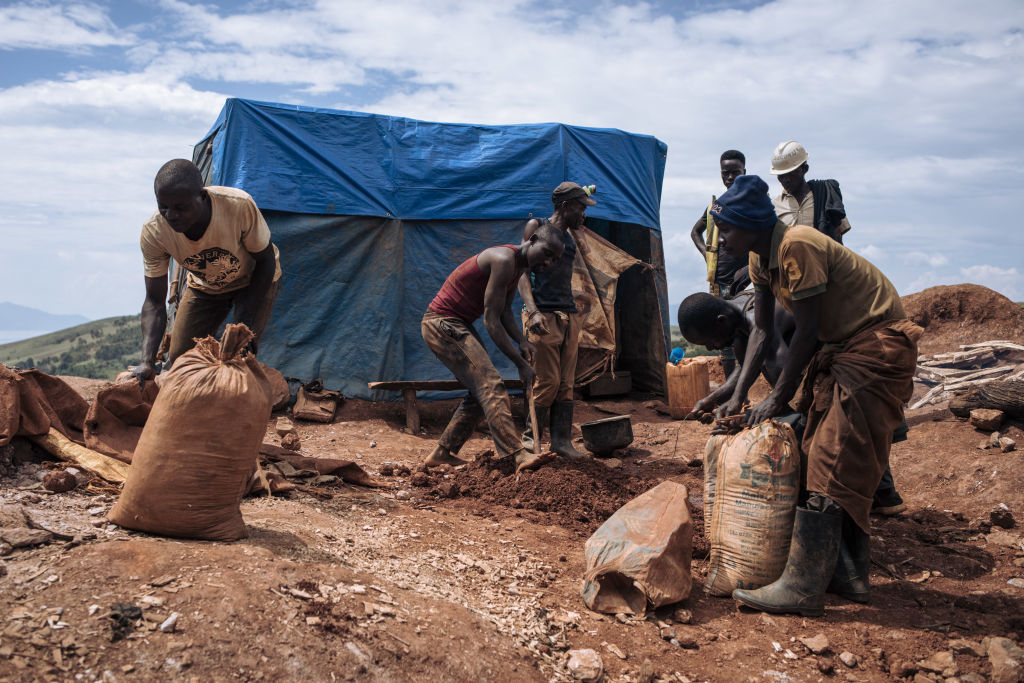ADF STAFF
Authorities in the eastern Democratic Republic of the Congo’s South Kivu province arrested 17 Chinese men in mid-December after making an unannounced visit to a gold mine in the village of Karhembo.
About 60 Chinese nationals were at the mine, and officials detained those who appeared to be in charge.
“We asked them to present us with the company’s documents,” Bernard Muhindo, South Kivu’s finance minister and acting mines minister, told Reuters. “There were no documents, zero. No certificate, no status, no national identification, nothing.”
Less than a week later, 14 of the men were released and headed back to China. South Kivu Gov. Jean-Jacques Purusi Sadiki said he was shocked to hear news of their release, as they owed $10 million in unpaid taxes and fines to the government.
Muhindo said his intention was to improve the system. “The idea is not to go on a manhunt, but rather to clean up the mining sector so that reliable partners can work properly and legally,” he said.
Congolese authorities have struggled for years to contain illegal mining, which is polluting the environment and robbing the region of vast, untold amounts of money.
“According to surveys, these companies mine at least 100 kilos of gold per month, per company,” Sadiki told Congolese news channel WION. “If you now calculate that one kilo of gold on the world market now costs between $65,000 and $80,000 per kilo, you can immediately imagine that 500 companies have mined how many kilos of gold per month, per year, and so on. And all that gold doesn’t come through here. It goes straight [to] Rwanda.”
In 2023, Finance Minister Nicolas Kazadi said the DRC lost almost $1 billion a year in minerals smuggled into Rwanda alone, according to a report by ENACT, which maps organized crime in central Africa. Most illegal mining operations in South Kivu are Chinese-owned.
“Chinese companies come here with a lot more money than we do, and they’re the ones who don’t respect the conditions set by the state,” Augustin Matenda, manager of the Mwenga Force Mining Cooperative, told WION.
In July 2024, South Kivu authorities suspended illegal gold mining operations to prevent hundreds of foreign companies, mostly Chinese, from mining without permits and failing to declare their profits.
Under the legislation, companies had to renew their mining permits, some of which have been expired for decades, Agence France-Presse (AFP) reported. Since then, companies that once operated illegally have tried to get authorization to resume business through the governor’s office.
“In place of the 117 illegal companies we invited, 540 showed up here overnight,” Sadiki told AFP.
In the South Kivu town of Kitutu, Italian priest Davide Marcheselli is among those who for years have railed against Chinese companies illegally mining gold. He and others say the practice pollutes rivers, destroys fields and takes money from legitimate artisanal miners. He also said those who run the companies are well connected.
“From the deputies, to the village chief, everyone receives something, money or shares,” Marcheselli told AFP.
In nearby Kamituga, Chinese gold mining companies remained active despite the ban. Felicien Mikalano, president of an association for artisanal miners said that local operators “don’t have the same means” as Chinese companies, such as machinery and cash.
Mine inspector Ghislain Chivundu Mutalemba said it is difficult to monitor mining activities since they are heavily guarded, and officials are often denied entry.
“These Chinese partners mine (and) the cooperatives sell the product over the counter,” Mutalemba told AFP. “We don’t know what percentage the Chinese take, or how much they produce.”
The situation makes many of the nearly 427,500 artisanal miners in eastern DRC frustrated and angry.
“We mine minerals, and we die in the process,” Deogratias Mutekulwa, an artisanal miner in Kamituga, told WION. “But we don’t see any benefits for society, not just here in Kamituga, but throughout the country, everywhere in Congo. We don’t see how the minerals help development.”

